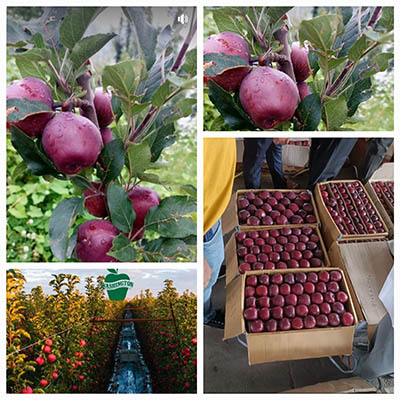Shimla: Joining hands with apple farmers, Congress leaders including Chief Minister Sukhvinder Singh Sukhu and Theog MLA, Kuldeep Singh Rathore have slammed the Prime Narendra Modi's recent decision to reduce import duty on American apples from 70% to 50%. They demand its rollback to save Apple industry of Himachal in the face of its crisis.
The reduction of import duties on Washington apples and the dumping of Iranian apple from hawala channels through porous borders of Afghanistan in Indian Markets and the import of Apple from SAARC countries have combined to deal a big blow to the apple industry just when the apple season is about to start. 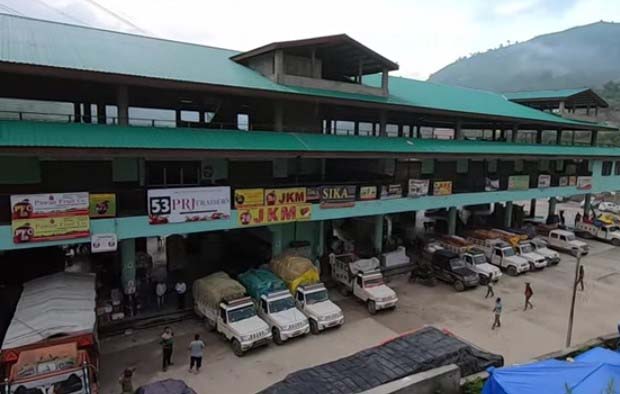
The import of apple from abroad had doubled in the post-Corona pandemic from January to December in 2022. It was 14 per cent higher from 2020. Most of the apples had come from Iran and Turkey as Washington apples took a hit after the Delhi had increased the import duty to 70 per cent.
India had imported 139,489 tonnes of apples in from April to December 2020 period that had gone up to 303. 255 tonnes in 2021-22.
India had imposed 70 per cent duties on Washington apples in 2019 soon after the then Trump Administration imposed 25 per cent duties on Steel and 10 per cent on aluminium from India.
India reversed decision by decreasing 20 per cent duties on import of Washington Apples this time.
Still American apple will be costlier as the ocean freight is higher, the informed the importers.
But the cut on Washington apple has come at a time when the apple farmers are facing the crop failure this year. American apple will make huge profits even if it is costlier, say the farmers.
Local arhityas and traders could exploit domestic markets in the opening apple season by creating less demand for the domestic apples that can lead to decrease in prices of local produce. 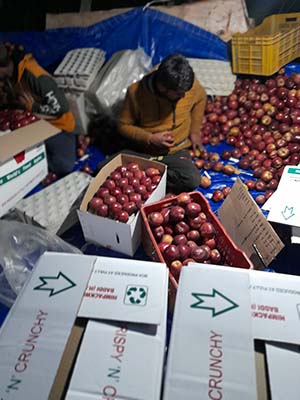
The import from SAARC and America should not be allowed by invoking anti-tariff barriers till the apple season is over, the farmers demand
The apple farmers associations, including Sayunkt Kisan Manch, Progressive Gowers Association and other bodies have lambasted the Centre's decision to decrease import duties on Washington apple. They demand an immediate rollback of the decision and bat for increasing it to 100 per cent as promised earlier by the PM.
The issue can snowball into a major slugfest between the Congress and BJP in view of the coming Lok Sabha elections before May 2024.
Rathore argued that this move would cause severe harm to the already struggling apple industry of Himachal Pradesh.
The apple industry is grappling with soaring production costs due to inflation-driven increases in pesticides, fungicides, labor, and packaging materials.
Rathore accused the BJP-led government of neglecting the interests of the Himachali farmers and reneging on their promises.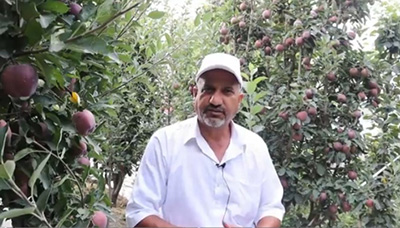
He said during the previous Lok Sabha Elections, PM Modi had vowed to increase import duty up to 100% to safeguard the welfare of the state's apple growers.
However, PM had made a U-Turn decreasing import duty, contradicted this promise, that has given a blow to the apple economy.
"The government of India must immediately withdraw this detrimental decision and restore the previous import duty," demanded Kuldeep Rathore, emphasizing the crucial role played by the apple industry in supporting Himachal Pradesh's economy.
Rathour underscored the present dismal state of the state's economy, attributing it to the lackluster performance of the previous BJP government.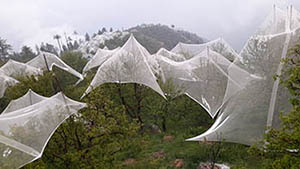
The apple industry in Himachal Pradesh, renowned as a major player, contributes significantly to the state's economic growth.
However, recent challenges such as rising costs of production, inflation, and now the reduction in import duty have cast a shadow of uncertainty over its future.
Farmers and stakeholders fear that these cumulative blows could push the industry further into crisis, endangering the livelihoods of thousands of apple growers.
The decision to reduce import duty on American apples has sparked widespread concern among industry representatives, who have called for urgent government intervention.
They argue that protecting domestic apple growers is not only crucial for the state's economy but also for preserving the traditional agricultural practices and the rich cultural heritage associated with apple farming in the region.
The fate of the apple industry and the livelihoods it sustains hang in the balance, awaiting a prompt resolution from the Central and state government as the apple season is about to start this month-end.




